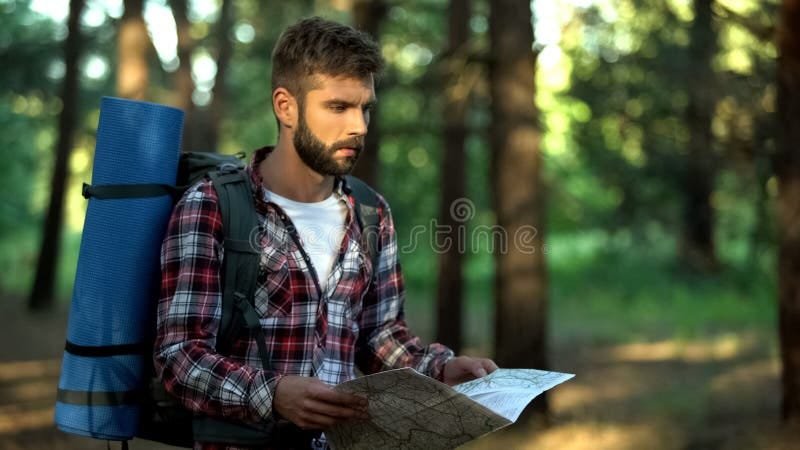That Moment When Your Phone Dies and You Realize You’re Actually Lost | by The Road to Zion | Jul, 2025

That sinking feeling when technology fails you in the wilderness
The battery icon flashed red, then the screen went black. Just like that, my trusty iPhone — my GPS, my camera, my connection to civilization — became nothing more than an expensive paperweight in my backpack.
I was three hours into what should have been a simple four-mile loop trail in the Cascade Mountains, but nothing around me looked familiar anymore. The confident stride I’d maintained all morning suddenly faltered as a cold realization washed over me: I had absolutely no idea where I was.
This wasn’t supposed to happen to me. I’d been hiking for years, always with my phone’s GPS app guiding me turn by turn. I’d grown so dependent on that little blue dot showing my exact location that I’d never bothered to learn how people navigated before smartphones existed. Now, standing alone among towering Douglas firs with gray clouds gathering overhead, I was about to get a harsh lesson in wilderness humility.
That day in the Cascades changed everything for me. After what felt like hours of aimless wandering (but was probably only 45 minutes), I finally stumbled back onto a marked trail that led me to safety. The relief was overwhelming, but so was the embarrassment. I’d let technology make me complacent, and it nearly cost me dearly.
Essential navigation tools that never need charging
The drive home was filled with uncomfortable questions. What if my phone had died in truly remote backcountry? What if weather had rolled in while I was lost? What if, what if, what if… I realized I’d been hiking like a tourist in my own backyard, completely dependent on technology that could fail at the worst possible moment.
That night, I ordered my first compass online. Not because I thought I’d use it regularly, but because I never wanted to feel that helpless again. Little did I know this purchase would completely transform how I experience the wilderness.
My first attempt at compass navigation was humbling, to say the least. I spent an entire Saturday morning in a local park, trying to make sense of degrees, bearings, and magnetic declination. The compass seemed to have a mind of its own, spinning wildly whenever I moved it near my phone or car keys. I was ready to give up when an elderly gentleman noticed my struggle.
“Young lady,” he said with a knowing smile, “that compass isn’t broken. You’re just learning its language. Give it some space from those metal objects and try again.”
That stranger, who turned out to be a retired search and rescue volunteer, spent two hours teaching me the basics. He showed me how to hold the compass level, how to account for magnetic declination, and most importantly, how to trust the needle even when my instincts disagreed. “Your phone might know where you are,” he explained, “but a compass teaches you where everything else is in relation to you.”
The confidence that comes from mastering traditional navigation
Over the following months, I practiced relentlessly. I started taking a compass on every hike, using it alongside my phone’s GPS to build confidence. I learned to triangulate my position using visible landmarks, to follow bearings across challenging terrain, and to navigate by reading contour lines on topographic maps. Each successful navigation built my confidence and deepened my connection to the landscape.
What surprised me most wasn’t just the practical safety benefits of compass navigation — though those are significant. It was how learning these traditional skills completely changed my relationship with the outdoors. When you navigate by compass, you can’t just follow a line on a screen. You have to observe your surroundings constantly, noting ridge lines, creek beds, and prominent peaks. You develop an intimate awareness of terrain that GPS users often miss.
- Redundancy saves lives: Always carry backup navigation methods
- Practice builds intuition: Regular compass use develops natural directional sense
- Technology enhances, doesn’t replace: GPS and compass work beautifully together
- Knowledge reduces anxiety: Confident navigation makes hiking more enjoyable
I also discovered that compass navigation forces you to plan more thoughtfully. Instead of blindly following GPS directions, you study maps beforehand, identify potential hazards and escape routes, and develop a deeper understanding of where you’re going and why. This preparation has prevented countless potential problems on subsequent adventures.
Perhaps most importantly, mastering compass navigation gave me the confidence to explore more remote areas. Knowing I can find my way without technology opened up a whole world of backcountry possibilities that previously seemed too risky. Last summer, I completed a five-day solo backpacking trip through roadless wilderness — something I never would have attempted during my phone-dependent days.
I’m not advocating for abandoning modern technology — I still carry my phone and use GPS regularly. But I’ve learned that the most confident outdoorspeople combine traditional and modern navigation methods. My phone provides precise positioning and route tracking, while my compass and map give me situational awareness and a reliable backup system.
The skills I’ve developed since that scary day in the Cascades have saved me from several potentially serious situations. During a sudden whiteout on Mount Rainier, when visibility dropped to less than ten feet, compass navigation guided our group safely back to camp. When my friend’s GPS malfunctioned during a canyon exploration in Utah, my ability to triangulate our position using visible peaks got us back on track.
Most importantly, I sleep better on backcountry trips now. There’s profound peace of mind that comes from knowing you’re never truly lost as long as you have the skills and tools to find your way. It’s a confidence that transforms hiking from nerve-wracking navigation anxiety into pure joy of movement through beautiful landscapes.
If my story resonates with you, don’t wait for your own “phone dies in the wilderness” moment to start learning. Whether you’re planning your first backcountry adventure or looking to enhance existing skills, proper compass navigation techniques can transform both your safety and your connection to the outdoors.
For comprehensive guidance on building these essential skills, I highly recommend this detailed guide on mastering compass navigation techniques for confident wilderness travel. It covers everything from basic compass components to advanced triangulation methods — knowledge that could quite literally save your life while deepening your appreciation for the natural world around you.


